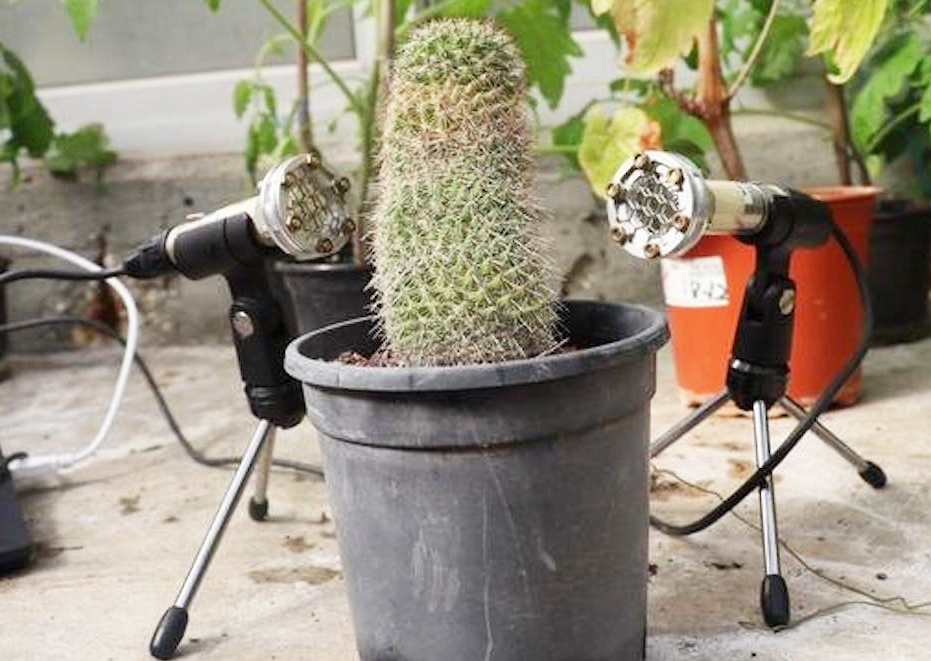How sensitive are you?
Have you ever wondered about things that go bump in the night? How about things the “pop” or “squish?” Are you the sensitive kind of person that really feels the ebb and flow of the planet’s energy? Researchers have recorded sounds emitted by plants that most humans cannot hear—and their click-like sounds are unique to each species, and varied depending on what exactly is stressing their growth. Similar to the popping of popcorn, they are emitted at a volume similar to human speech, but at higher frequencies, beyond the hearing range of the normal human ear, according to the team from Tel Aviv University. “We found that plants usually emit sounds when they are under stress, and that each plant and each type of stress is associated with a specific identifiable sound,” said Professor Lilach Hadany. “While imperceptible to the insensitive human ear, the sounds emitted by plants can probably be heard by various animals, such as bats, mice, and insects. But do these vibrations also become airborne soundwaves—namely sounds that can be recorded from a distance? Our study addressed this question, which researchers have been debating for many years.”
For the first stage of the study, published in the journal “Cell,” the researchers placed plants in an acoustic isolation box in a quiet, isolated basement with no background noise. Ultrasonic microphones record sounds at higher frequencies than the maximum detectable by a human adult, which is about 16 kilohertz. Mics were set up at a distance of about 4 inches from each plant, including tomatoes, grape vines, tobacco, wheat, corn, cactus, and henbit. Researchers have recorded sounds emitted by plants that no human can hear—and their click-like sounds are unique to each species, and varied depending on what exactly is stressing their growth. Before recording the plants, the team subjected them to various treatments: some plants had not been watered for five days, some had their stems cut, and some were untouched. NO plants in this study were permanently harmed disfigured or sexually mutilated.
“Our intention was to test whether the plants emit sounds, and whether these sounds are affected in any way by the plant’s condition. Our recordings indicated that the plants in our experiment emitted sounds at frequencies of 40-80 kilohertz.” “Unstressed plants emitted less than one sound per hour, on average, while the stressed plants—both dehydrated and injured—emitted dozens of sounds every hour.” The computer algorithms learned how to distinguish between different plants and different types of sounds and were ultimately able to identify the plant and determine the type and level of stress from the recordings. You can listen to tomatoes talking—and grape vines gabbing—in the video below…
Flowers for Vegetarians
Did you know “Vegetarian” is a Native American word?
It means “Lousy Hunter.”
If two vegetarians get into a fight, would it still be called a beef?
Not sure, depends on what’s at steak.
So you are becoming a vegetarian?
That is a big missed steak.
A vegetarian walks into a bar and orders a beer. “Since I became a vegetarian, it has really changed everything in my life, Even my music choices.” the guy tells the bartender. “I’ve found Robert Plant to be a great alternative to Meatloaf.”
April 24th Birthdays
1999 – Ryan Newman, 1977 – Jessica Chastain, 1998 – Autuma Wendel, 1942 – Barbara Streisand
1993 – Joe Kerry, 1995 – Jordan Fisher , 1976 – Peyton Manning, 1977 – Phil Robertson



